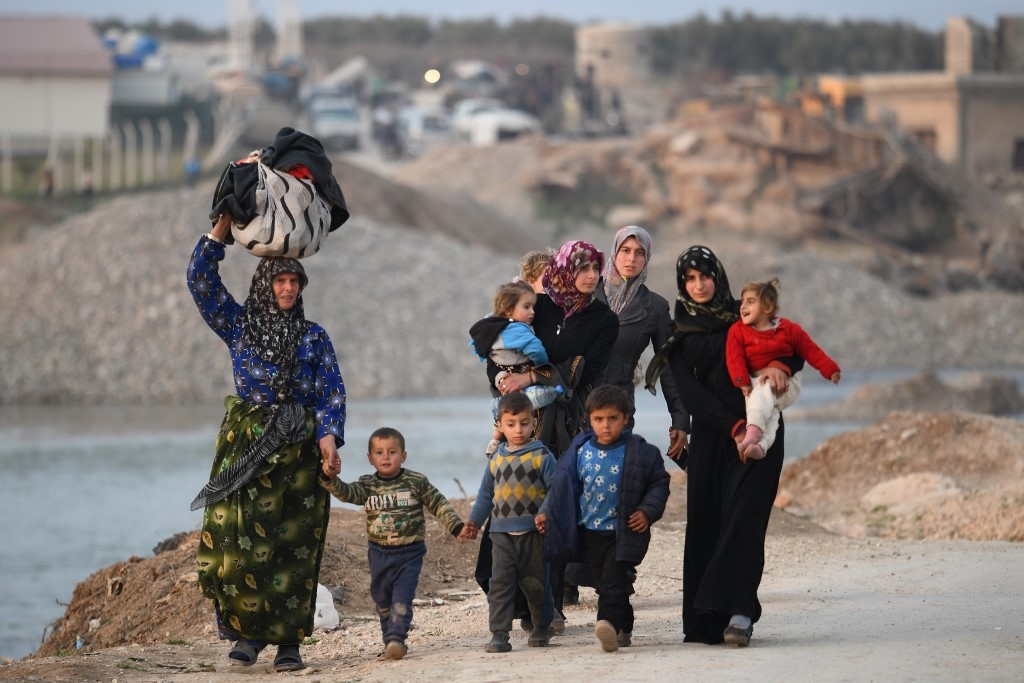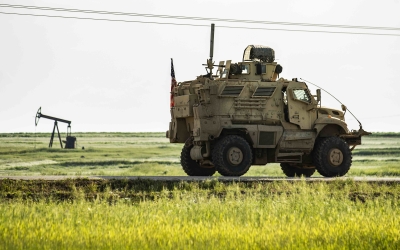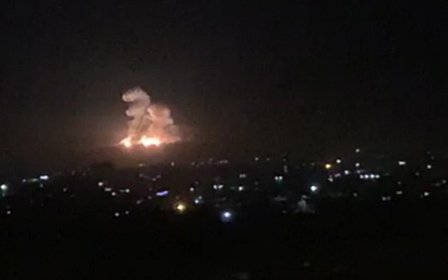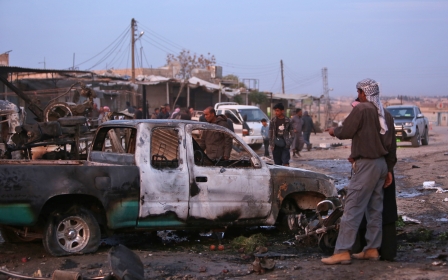US expresses concern over Turkey-backed fighters in Syria

The US State Department expressed concern over reports that Turkey-backed fighters have committed human rights abuses in northeast Syria, according to a new inspector general's report.
According to the Lead Inspector General's report on Operation Inherent Resolve, the operational name for the US fight against the Islamic State (IS) group, the State Department said it had received reports that Turkish-backed forces implemented arbitrary detentions and carried out extrajudicial killings in the Kurdish-majority region after Ankara's incursion in October.
'We have reiterated our expectation that Turkey, and the Syrian opposition, investigate alleged violations and abuses and promote accountability where appropriate'
-State Department via Operation Inherent Resolve report
Some of those arbitrarily detained had reportedly been moved "across an international border into Turkey", which analysts say would be a violation of international humanitarian law.
Turkish-backed forces have also taken private land and settled new populations on the seized areas, according to the report. It also accused the fighters of repeatedly and deliberately shutting off of water access to half a million civilians.
"We have reiterated our expectation that Turkey, and the Syrian opposition, investigate alleged violations and abuses and promote accountability where appropriate," the State Department said.
New MEE newsletter: Jerusalem Dispatch
Sign up to get the latest insights and analysis on Israel-Palestine, alongside Turkey Unpacked and other MEE newsletters
The State Department told investigators that the Syrian Interim Government, a political body that operates in Turkish-controlled areas of Northern Syria had not "consistently arrested, prosecuted, or otherwise held accountable any members implicated in human rights abuses or violations of the law of armed conflict".
'No sanctions'
Turkey entered northeast Syria, which had been controlled by Kurdish fighters allied to the US, last year, after US President Donald Trump abruptly withdrew American forces in a surprise decision that drew widespread criticism.
To the international community, the US withdrawal appeared to give the green light for Turkey's military offensive in the region, but eight days after the announcement, Washington imposed sanctions on a series of Turkish officials and government agencies over the incursion.
The sanctions were levied just days after pro-Ankara fighters reportedly "executed" at least nine civilians, including Hevrin Khalaf, a female Kurdish party official who was "taken out of her car during a Turkish-backed attack and executed by Turkish-backed mercenary factions", according to the political arm of the Kurdish-led Syrian Democratic Forces (SDF).
At the time, the Turkish-backed Syrian National Army condemned the killings and said it would investigate.
While many of the alleged offences detailed in the report were sanctionable actions, the State Department noted the US had not sanctioned any of the Turkey-allied groups for abuses.
"The United States has not sanctioned any [Turkish-supported opposition groups] in response, although the Executive Order on Syria-related Sanctions provides authority to do so if certain criteria are met," the report said.
Lack of action
Washington's lack of action directly contradicts threats made back in October by Trump, who at the time said the US was prepared to "swiftly destroy" Turkey's economy if it continued its offensive in Syria.
The State Department said it was specifically concerned over "reports of human rights abuses in Afrin", including desecration of several Yazidi shrines, kidnapping for ransom of Yazidi and Kurdish women, and looting and vandalizing of homes and archaeological sites.
The department told the Inspector General's office that it was unable to confirm such reports because it does not have "a presence on the ground", but added that many of the allegations "appear to be credible".
At least 150 of the missing women from Afrin have been identified by the Missing Afrin Women Project.
Yazda, a group advocating for the long-persecuted religious Yazidi minority, says nearly 80 percent of the Yazidi religious sites in Syria have been looted, desecrated or destroyed, including 18 sites in Afrin.
Middle East Eye delivers independent and unrivalled coverage and analysis of the Middle East, North Africa and beyond. To learn more about republishing this content and the associated fees, please fill out this form. More about MEE can be found here.





